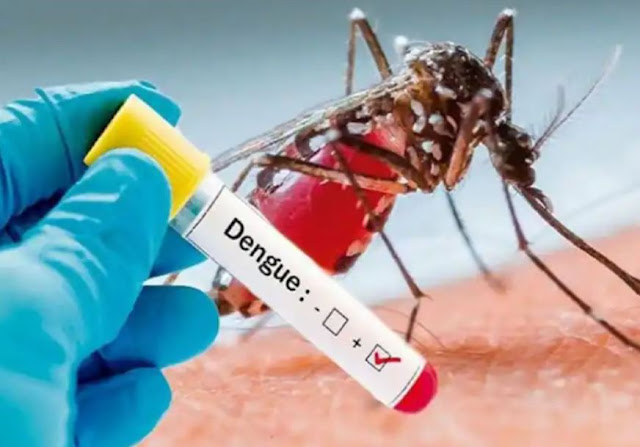Karachi hospitals are overflowing with dengue patients.
Karachi hospitals are overflowing with dengue patients.
Senior medical specialists told Dawn that many dengue patients were seeing their doctors these days and that anyone complaining of a sore throat and a high fever should get tested as soon as they notice them, usually within 24 hours.
They advised against self-medication, including antibiotics, steroids, and even some common medications that drop the platelet count, as these may exacerbate the situation and result in death. They also advised against bad patient treatment by any (unqualified) doctor.
However, they did not call the situation "alarming" because most patients recovered successfully at home within a week.
Three hundred forty-seven cases were reported in five days, and those who had a fever or sore throat were encouraged to get checked right away.
According to the reports, the clinic also treated 45 youngsters for dengue, pneumonia, meningitis, enteric fever, dysentery, and diarrhea.
"A significant issue we have is a shortage of room. Ninety-five percent of our high dependency units on three flours are filled, according to a senior physician employed by the hospital, who added that the facility had no significant problems providing patients with the blood they needed.
In the initial five days of this month (September), the health department documented 347 cases, most of which were reported in Karachi East (113). In August, 1,265 instances in all were reported.
Not a serious situation?
The number of dengue cases found at the Dow University of Health Sciences' central laboratory over the previous three months gradually increased, according to experts there.
Professor and director of the university's Sindh Public Health Lab, Dr. Saeed Khan, stated: "By mid-August, we had 20 percent dengue cases out of the 1,300 samples collected from our labs throughout the city. Later, 30 percent of the 1,563 suspicious samples contained dengue. We had 3,274 samples by the end of August, and 40% of those samples had positive results for dengue infections.
He contends that those with a history of the disease are more susceptible to experiencing more severe symptoms in the event of subsequent infection with a different serotype.
The four different but closely related serotypes of the dengue virus exist. Immunity against that serotype is thought to last a lifetime after recovery from infection. Serotype-2 is more common in our country. "Infection from the other serotype was made easier by antibodies produced after the initial dengue attack," the doctor stated.
According to Dr. Khan, the increase in cases was very much in keeping with the seasonal trend of dengue that is observed virtually every year. He also debunked the commonly held notion that mosquito attacks were more prevalent at Dawn and evening and that clean water was a breeding ground for dengue insects.
He said the focus should always be on avoiding mosquito bites, adding that there is a long list of illnesses spread by mosquitoes.
Professor and dean at the Jinnah Postgraduate Medical Centre, Dr. Syed Masroor Ahmed, claimed that dengue cases have risen along with other illnesses, like malaria.
The specialists advise consumers to be aware that routinely used medications, including aspirin, can drop platelet levels and that antibiotics shouldn't be used in viral infections.
Furthermore, the treatment of dengue has evolved, and oral hydration is now prioritized. Some regularly used syrups for fever and sore throat have ingredients that reduce bodily reaction ever.






Comments
Post a Comment